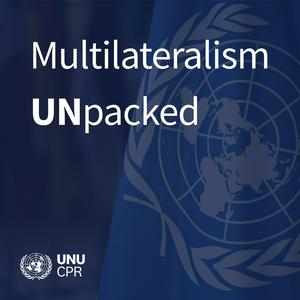Exploring the UN’s Role in the Global Governance of AI
Artificial Intelligence (AI) has rapidly become one of the most transformative technologies of our time. From reshaping industries and labour markets to influencing education, healthcare and security, AI is increasingly embedded in every part of our societies.Although there is increasing convergence on the risks and opportunities associated with AI, policy solutions are diverse and fragmented, with standards, sectoral regulations and strategies varying from country to country. In response, the United Nations has provided a platform for global dialogue and scientific consensus on AI, and recently, during this year’s 80th General Assembly, Member States launched both the International Scientific Panel (ISP) on AI , designed to build a common, evidence-based understanding of the technology, and the Global Dialogues on AI Governance, bringing together governments, civil society, industry and academia to exchange perspectives on a regular basis.This episode of Multilateralism UNpacked explores these developments with Lucia Velasco, Head of AI Policy at the Office of the UN Office of Digital and Emerging Technologies, who spoke to Eleonore Fournier-Tombs, Head of Anticipatory Action and Innovation at UNU-CPR, about where global AI governance stands today, what the ISP and Global Dialogues mean in practice, and how AI governance may evolve in the years ahead. Suggested reading list: Global Digital Compact: https://www.un.org/global-digital-compact/sites/default/files/2024-09/Global%20Digital%20Compact%20-%20English_0.pdf.International Scientific Panel on AI: https://www.un.org/independent-international-scientific-panel-ai/en. Global Dialogues on AI Governance: https://www.un.org/global-dialogue-ai-governance/en. A Global Architecture for Artificial Intelligence: https://collections.unu.edu/eserv/UNU:9284/A_Global_Architecture_for_Artificial_Intelligence.pdf ¿Te va a sustituir un algoritmo?: El futuro del trabajo en España: https://www.amazon.com/-/es/%C2%BFTe-sustituir-algoritmo-futuro-trabajo/dp/8418895055


